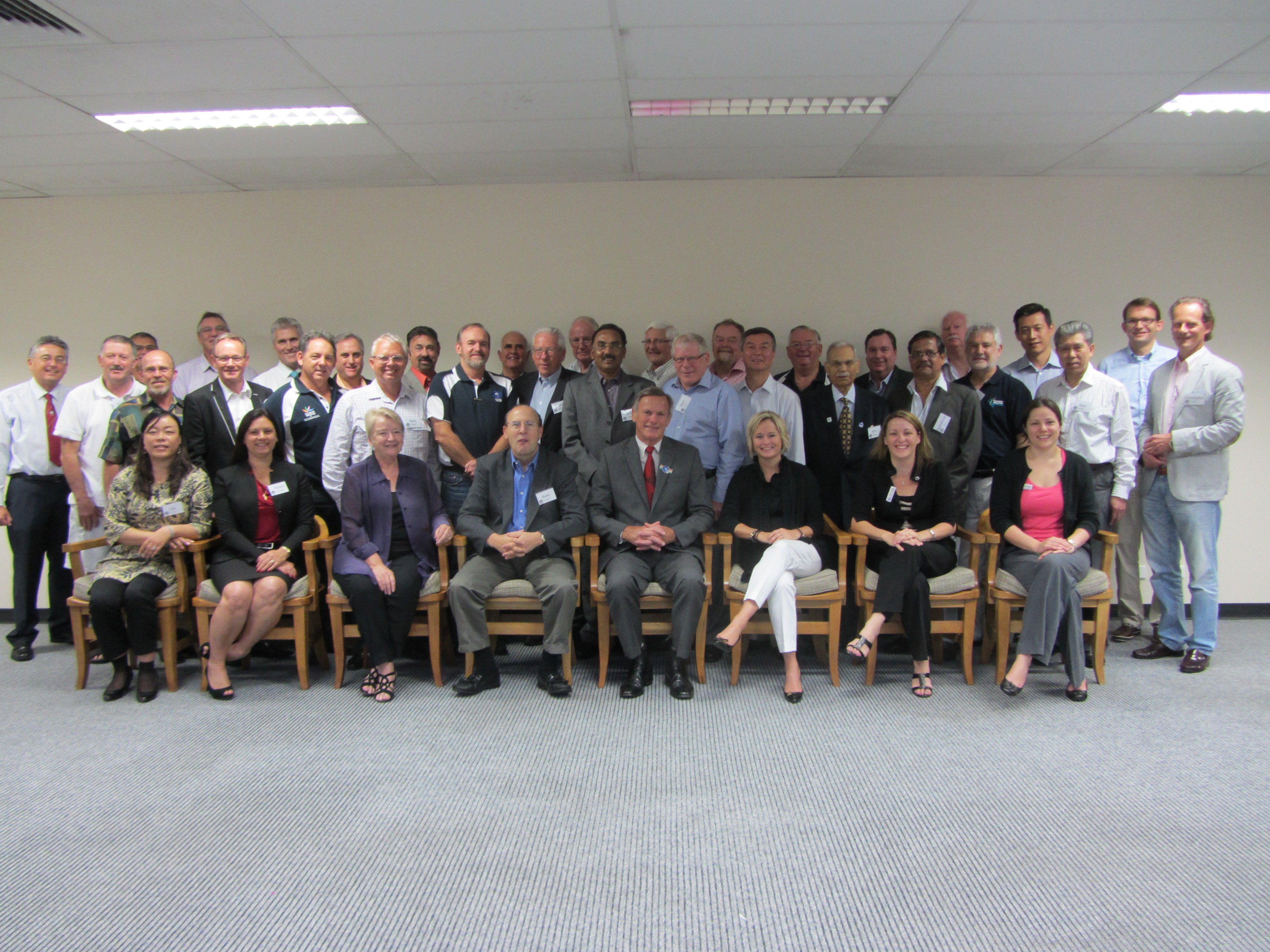Plumbing: Take it personally

In late October 2012, I attended one of the twice-yearly WPC general meetings, which was held in Brisbane and hosted by the Master Plumber’s Association of Queensland. These meetings rotate globally to give local members a greater opportunity for involvement in the direction of the organisation.
In previous editions of Plumbing Connection you’ve likely read some of the WPC Newsletters we’ve published as well as articles encouraging you to participate in this worthy movement.
The genesis of the WPC actually took place in 1986 in Sydney at a plumbing exhibition, when visitors (mostly contractors) from various countries met and agreed that the industry would benefit with the formation of a global organisation that could assist the industry to share information/ideas and aid other countries less fortunate than most western democracies. As there are some 2.8 million people without access to potable water and sanitation, the global health issue looms large and is not solved over-night.
The WPC is comprised of member organisations, primarily contractor associations, trade unions, government registration/licensing bodies, plumbing manufactures/distributor groups as well as affiliate organisations like us, Connection Magazines Pty Ltd.
By way of the contractor associations, many Plumbing Connection readers are already indirect members.
But what does the WPC do, I hear you ask?
First and foremost, let’s remember that the WPC survives on volunteer input – mostly people who are already busy with their day-jobs. Hopefully, in two or three years time, when enough funds have been accumulated, a full time secretariat can manage and grow the organisation.
The WPC has NGO ‘not-for-profit’ status, which was hard-won through the World Health Organisation (WHO).
What’s interesting about the WHO is that a fair amount of its focus is on health solutions (after the event) rather than preventative programs, which is the great benefit the plumbing industry brings.
I’m sure you’ve all heard the story that after a major crisis such as an earthquake, it is better to send in the plumbers before doctors, as the spread of the disease is the primary need. However, that has always been hard for various professionals (like engineers and medicos and even NGOs) to stomach!
What the WPC found is that earning a place at the table of the likes of the WHO takes an inordinate amount of time. There’s a labyrinth of bureaucratic layers to go through.
A worthy publication (Health Aspects of Plumbing) recently published by the WPC took some 8 years to be guided through the approval layers at the WHO – thus the WPC members guiding such a project deserve great credit for their patience and determination.
While in Brisbane I spoke with a WPC committee member who is a great example of what an individual as part of such an organisation can achieve for the plumbing industry on the global stage.
Rich Prospal, an enthusiastic contractor from the US answered the call of the WHO via the WPC about a hospital in Tajikistan that was in dire straits.
Rich, under his own steam has visited this poor Russian federation region twice in the past 18-months to assist the locals with improving the water and sanitation situation at the Rudaki Central District Hospital. Rich told me that although the hospital is less than 25 miles out from a thriving city displaying the benefits of the ‘new economy’, he found a hospital with absolute third-world standards – no reliable potable water and hopeless sanitation standards – an unbelievable situation given it is the district’s medical centre.
This led Rich to assisting with the development of a Water Safety Plan and his follow-up visit was to inspect the work-in-progress and give additional recommendations for the completion of the work and conduct basic plumbing training programs.
The language barrier is significant in delivering such projects and requires much patience for anyone in that situation.
You can read more detail about this fascinating work by Rich in his report on the WPC website www.worldplumbing.org
In Brisbane, delegates provided reports; proposed amendments to the WPC bylaws were discussed and objectives of the WPC were considered and approved as part of the WPC Strategic Plan.
Dr Steve Cummings (Caroma R&D manager) provided the visiting delegates from the 11 visiting countries with an informative update on Australia’s world-leading programs on water conservation, efficient plumbing product design and the work of the dry-drain committee.
Another invited speaker was David Hoey, CEO of WorldSkills International. David outlined the significant growth of this organisation that provides a unique means of exchange and comparison of world-class competency standards in the industrial trades and service sectors of the global economy. The continued growth of WorldSkills International attests to the fact that traditional trade and craft skills along with the newer technology multi-skilled vocations make an essential contribution to the economic and social well- being of peoples everywhere.
Australia has been very successful over the years in the WorldSkills competitions and plumbing has been at the head of that success.
Now you can play your part
At the meeting, an amendment to the constitution was passed which introduced an important new membership level which means anyone across the industry can now be involved in the WPC at a local level.
Individual membership has been introduced for an annual fee of only US$55. However, it’s not so much about what you get for your membership as to what you can contribute to this program.
Nonetheless, there are some opportunities to use the individual member logo to impress upon customers and colleagues your involvement and the existence of such a worthwhile organisation. That is all spelled out in the member kit.
Importantly, a membership gives you the opportunity to get involved and track the progress of the various programs.
So, there is nothing stopping you now.
